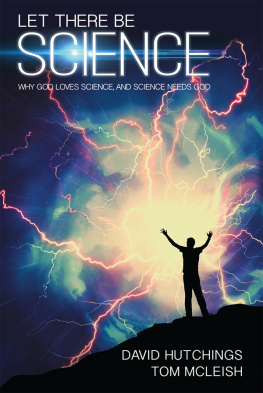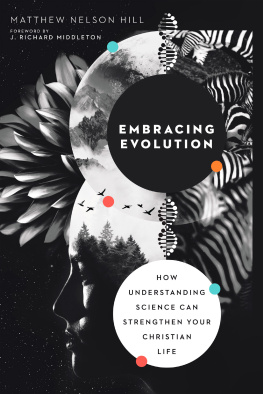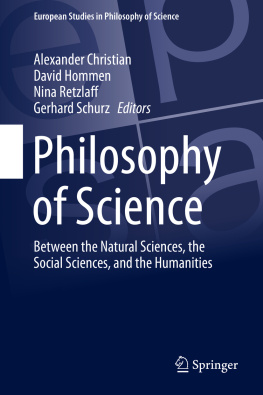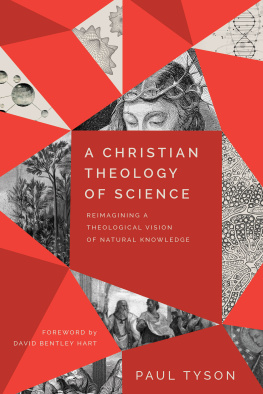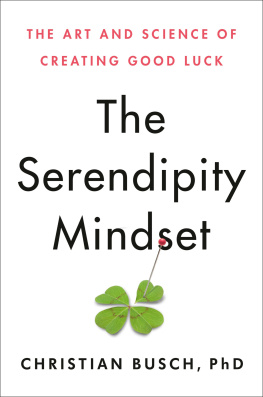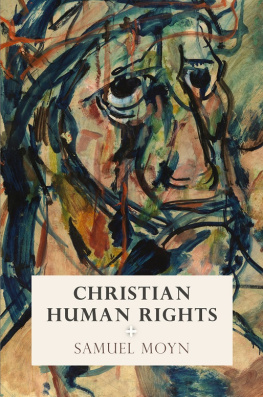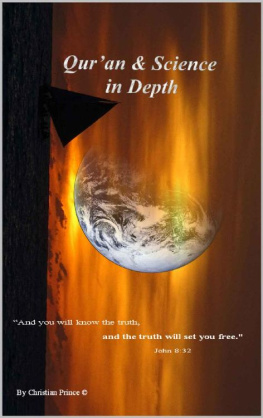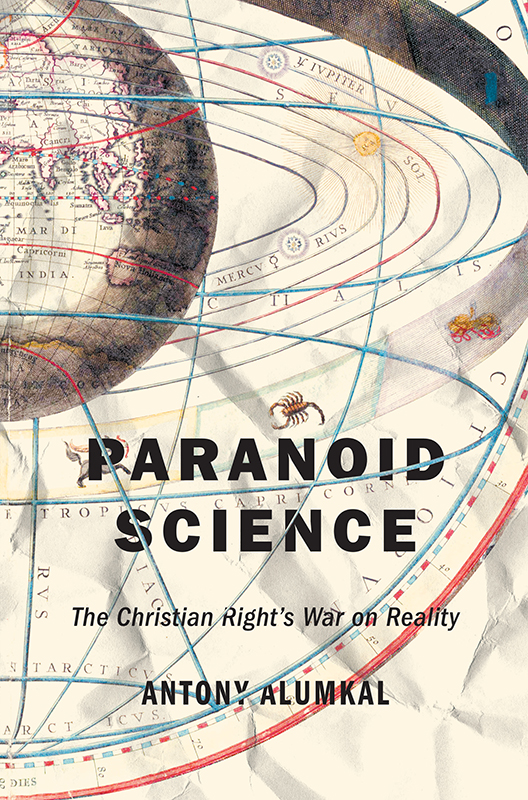
Paranoid Science
Paranoid Science
The Christian Rights War on Reality
Antony Alumkal

NEW YORK UNIVERSITY PRESS
New York
NEW YORK UNIVERSITY PRESS
New York
www.nyupress.org
2017 by New York University
All rights reserved
References to Internet websites (URLs) were accurate at the time of writing.
Neither the author nor New York University Press is responsible for URLs that may have expired or changed since the manuscript was prepared.
ISBN : 978-1-4798-2713-8
For Library of Congress Cataloging-in-Publication data, please contact the Library of Congress.
New York University Press books are printed on acid-free paper, and their binding materials are chosen for strength and durability.
We strive to use environmentally responsible suppliers and materials to the greatest extent possible in publishing our books.
Manufactured in the United States of America
10 9 8 7 6 5 4 3 2 1
Also available as an ebook
For Elizabeth and Isabel
Contents
My books basic premise is that science is under attack by the Christian Right, whose leaders appeal to paranoid conspiracy theories by claiming that many scientists peddle misinformation and conceal their actions from the public. Supposedly these scientists threaten to undermine the moral foundation of American society. The four most significant offensives in this attack come from proponents of intelligent design, the ex-gay movement, conservative bioethics, and climate change denial. The combined effect of these four paranoid science movements is to create an alternative reality where Christian Right leaders religious beliefs are safe from disconfirmation.
I write as a sociologist trained in the study of religion. Science is the terrain on which these four movements fight, but ultimately theyre driven by religious and political dynamics. These dynamics are what I analyze in the pages ahead. I also write as a critical sociologist. I believe that sociology is called to a careful study of the facts about human societies, but theres room in the discipline for discussing what kind of society we should be.
My writing is clearly influenced by my social location. Ive spent a decade and a half as a faculty member at the Iliff School of Theology, a United Methodist seminary with historic ties to the liberal or progressive wing of American Christianity, which holds that Christians should constantly revise their beliefs in light of new knowledge.
Ive been working on this book for a long time, so I have many people to thank. First mention goes to the fine research assistants with whom I had the pleasure of working: Kevin Hall, Kyle Talley, Andy Boesenecker, Amy Hanson, Tucker Plumlee, and Dan Lillie. A number of scholars gave me valuable feedback on early drafts of this material, especially Laurel Kearns, Dawne Moon, Jerry Park, and Nancy Wadsworth, along with my faculty colleagues at Iliff. Iliff and University of Denver students too numerous to name have also helped me to think through this material. Members and clergy in several Denver churches were willing to respond to presentations about this material, including Messiah Lutheran Church, Christ Church United Methodist, Park Hill Congregational United Church of Christ, and my own congregation, St. Thomas Episcopal Church. Special thanks to my editor at New York University Press, Jennifer Hammer, for sage guidance along the way.
The biggest thanks goes to the two lovely ladies with whom I share a home, Elizabeth and Isabel, for putting up with the many hours when I was hard at work and unavailable to them.
In 2002 I was reading the Christian Century, the flagship magazine of the mainline Protestant world, when an article caught my eye. A biblical scholar named Robert A. J. Gagnon was responding to a previous issue, where his book The Bible and Homosexual Practice: Texts and Hermeneutics was negatively reviewed by the liberal biblical scholar Walter Wink. Gagnon offered the expected assertions about the Bible and church tradition condemning homosexuality, but he also appealed to social science data in his attempt to prove that the negative effects attending homosexual behavior are disproportionately high, often grossly so.
Since Im a sociologist, my first reaction was to chuckle at his clumsy attempt at social science reasoning. This Gagnon fellow, clearly, was in over his head. But then I felt puzzled. Why on earth would a biblical scholar use social science data to support his interpretation of the Bible? As a faculty member at a school of theology, I knew that this wasnt how biblical scholarship worked, at least among academically reputable scholars. I was intrigued enough to pick up a copy of Gagnons controversial book.
It turned out that Gagnon was a leader of a movement claiming that homosexuality was a curable illness and that the psychiatric establishment was covering up this fact because it had been taken over by gay activists motivated by politics rather than science. His book recycled arguments that went back nearly two decades. Ive done significant research on American evangelicalism, and I was certainly aware that evangelical leaders condemned homosexual behavior and offered healing to those who wished to become straight. What I hadnt known was that these practices were supported by a movement, called the ex-gay movement, with an extensive organizational infrastructure, and that for members of this movement, science was contested territory, a terrain on which to wage battle. This reminded me of another emerging movement of evangelicals battling over scientific truthintelligent design. A foray into the intelligent design literature revealed some striking parallels with the ex-gay movement. Further research uncovered two other evangelical movements challenging the work of scientists, one promoting conservative stances on bioethical issues and a second denying the existence of anthropogenic (human-induced) climate change.
No one had yet written a comparison of these four movements, and I knew I had the subject matter for a book. After finishing up some other research projects, I dove into the materials (books, websites, and DVDs) that each movement had produced. I found lots of fascinating and disturbing details about each. However, I still struggled to articulate the underlying theme that linked the four movements. Then, while reading through the scholarly literature on evangelicalism, I came across a reference to the work of the historian Richard Hofstadter. Hofstadters classic essay The Paranoid Style in American Politics had attracted renewed attention in the media when critics of the Bush/Cheney administration charged that its policies were rooted in paranoid thought rather than reality. Something told me I needed to read that essay for myself.
Did I ever. I was stunned by how much Hofstadters description of paranoid political movements matched the behavior of the four evangelical movements I had been studying. I soon realized that they werent simply advancing pseudoscience, they were advancing paranoid science.
Paranoid-Style Politics
To understand the four paranoid science movements that I focus on in this book, we need to look at Hofstadters classic essay. Hofstadter first presented The Paranoid Style in American Politics as the Herbert Spencer Lecture at Oxford University in November 1963. He included an expanded and revised version in his 1965 book
Next page

